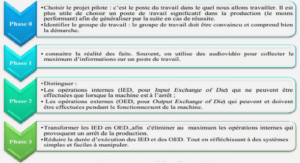Marxism in African Postcolonial ThinkinG CONFIDENCE
Emergence and Evolution of Postcolonial Studies
Postcolonial literature certainly may benefit from the application of such a project. The vaguely defined discipline that has begun to play an increasingly informative role in the production of knowledge and change that is alternative to the Western academy finds itself situated immediately with the ongoing issue of postcolonial period. Any discussion of postcolonial literature, however, must involve a consideration of colonialism itself. This is important for several reasons. Colonialism is the fundamental generator of these different fields of studies, post colonialism, postcolonial studies and postcolonial literature. The field of Postcolonial Studies has been gaining prominence since the 1970s. Some would date its rise in the Western academy from the publication of Edward Said’s influential critique of Western constructions of the Orient in his 1978 book, Orientalism. The growing currency within the academy of the term « postcolonial » (sometimes hyphenated) was consolidated by the appearance in 1989 of The Empire Writes Back: Theory and Practice in Post-Colonial Literatures by Bill Ashcroft, Gareth Griffiths, and Helen Tiffin. Since then, the use of cognate terms Commonwealth and Third World that were used to describe the literature of Europe’s former colonies has become rarer. Although there is considerable debate over the precise parameters of the field and the definition of the term postcolonial, in a very general sense, it is the study of the interactions between European nations and the societies they colonized in the modern period.The European empire was said to have held sway over more than 85% of the rest of the globe by the time of the First World War, having consolidated its control over several centuries. The sheer extent and duration of the European empire and its disintegration after the Second World War have led to widespread interest in postcolonial literature and criticism in our own times. The list of former colonies of European powers is a long one. They are divided into settler (example: Australia, Canada) and non-settler countries (India, Jamaica, Nigeria, Senegal, and Sri Lanka). Countries such as South Africa and Zimbabwe which were partially settled by colonial populations complicate even this simple division between settler and non-settler. The widely divergent experiences of these countries suggest that postcolonial is a very loose term. In strictly definitional terms, for instance, the United States might also be described as a postcolonial country, but it is not perceived as such because of its position of power in world politics in the present, its displacement of native American populations, and its annexation of other parts of the world in what may be seen as a form of colonization. For that matter, other settler countries such as Canada and Australia are sometimes omitted from the category postcolonial because of their relatively shorter struggle for independence, their loyalist tendencies toward the mother country which colonized them, and the absence of problems of racism or of the imposition of a foreign language. It could, however, be argued that the relationship between these countries to the mother country is often one of margin to center, making their experience relevant to a better understanding of colonialism. The debate surrounding the status of settler countries as postcolonial suggests that issues in Postcolonial Studies often transcend the boundaries of strict definition. In a literal sense, « postcolonial » is that which has been preceded by colonization. The second college edition of The American Heritage Dictionary defines it as « of, relating to, or being the time following the establishment of independence in a colony. » 7 In practice, however, the term is used much more loosely. While the denotative definition suggests otherwise, it is not only the period after the departure of the imperial powers that concerns those in the field, but that before independence as well. The formation of the colony through various mechanisms of control and the various stages in the development of anti-colonial nationalism interest many scholars in the field. By extension, sometimes temporal considerations give way to spatial ones (i.e. in an interest in the post colony as a geographical space with a history prior or even external to the experience of colonization rather than in the postcolonial as a particular period) in that the cultural productions and social formations of the colony long before colonization are used to better understand the experience of colonization.
Postcolonial thinking
Rooted in colonial power and prejudice, postcolonialism develops from a four-thousandyear history of strained cultural relations between colonies in Africa and Asia and the Western world. Throughout this long history, the West became the colonizers, and many African and Asian countries and their peoples became the colonized. During the nineteenth century, Great Britain emerged as the largest colonizer and imperial power, quickly gaining control of almost one quarter of the earth’s landmass. By the middle of the nineteenth century, terms such as colonial interests and the British Empire were widely used both in the media and in government policies and international politics. Many British people believed that Great Britain was destined to rule the world. Likewise, the assumption that Western Europeans and, in particular, the British people were biologically superior to any other race a term for a class of people based on physical and or cultural distinctions remained relatively unquestioned. Such beliefs directly affected the ways in which the colonizers treated the colonized. Using its political and economic strength, Great Britain, the chief imperialist power of the nineteenth century, dominated her colonies, making them produce then give up their countries’ raw materials in exchange for what material goods the colonized desired or were made to believe they desired by the colonizers. Forced labor of the colonized became the rule of the day, and thus the institution of slavery was commercialized. Often the colonizers justified their cruel treatment of the colonized by invoking European religious beliefs. From the perspective of many white Westerners, the peoples of Africa, the Americas, and Asia were “heathens,” possessing pagan ways that must be Christianized. How one treats peoples who are so defined does not really matter, they maintained, because many Westerners subscribed to the colonialist ideology that all races other than white were inferior or subhuman. These subhumans or “savages” quickly became the inferior and equally “evil” Others, a philosophical concept called alterity whereby “the Others” are excluded from positions of power and viewed as both different and inferior. By the early twentieth century, England’s political, social, economic, and ideological domination of its colonies began to disappear, a process known as decolonization. Exactly as qualified by Che by these words: “The final hour of colonialism has struck, and millions of inhabitants of Africa,Asia, and Latin America rise to meet a new life and demand their unrestricted right to self-determination.”8 By mid century, for example, India had gained her independence from British colonial rule. Many scholars believe that this event marks the beginning of postcolonialism or Postcolonial studies, a term coined by the French demographer Alfred Sauvy. When India received her independence, the former British colony was divided into two nations, the India Union and Pakistan. This partitioning, what scholars call the “Great Divide,” led to ethnic conflict of enormous proportions between India, a new member of the British Commonwealth in 1947, and the mostly Muslim state of Pakistan. Hundreds of thousands of people died in the struggle, igniting the outrage of a vast array of scholars, writers, and critics concerning the social, moral, political, and economic conditions of the afteraffects of colonialism in what were once called third-world countries. The beginnings of postcolonialism’s theoretical and social concerns can be traced to the 1950s. Along with India’s independence, this decade witnessed the ending of France’s long involvement in Indochina; the parting of the ways between the two leading figures in existential theory, Jean-Paul Sartre and Albert Camus, over their differing views about Algeria; Fidel Castro’s now-famous “History Shall Absolve Me” speech; and the publication of Frantz Fanon’s Black Skin, White Masks (1952) and Chinua Achebe’s novel Things Fall Apart (1958). The following decades witnessed the publication of additional key texts that articulated the social, political, and economic conditions of various subaltern groups. In 1960 the Caribbean writer George Lamming published The Pleasures of Exile, a text in which Lamming critiques William Shakespeare’s play The Tempest from a postcolonial perspective. The next year Fanon published The Wretched of the Earth (1961), a work that 8 Che Guevara, December United Nation 11, 1964 highlights the tensions or binary oppositions of white versus black, good versus evil, and rich versus poor, to cite a few. Other writers, philosophers, and critics such as Albert Memmi continued publishing texts such as The Colonizer and the Colonized (1965, English version) that would soon become the cornerstone of postcolonial theory and writings. In particular, postcolonialism gained the attention of the West with the publication of Edward Said’s Orientalism (1978) and Bill Ashcroft, Gareth Griffiths, and Helen Tiffin’s monumental text The Empire Writes Back: Theory and Practice in Post-Colonial Literatures (1989). With the publication of these two texts, the voices and the concerns of many subaltern cultures would soon be heard in both academic and social arenas. The terms postcolonial and postcolonialism first appear in scholarly journals in the mid-1980s and as subtitles in texts such as Ashcroft, Griffiths, and Tiffin’s previously mentioned powerful work and in 1990 in Ian Adam and Helen Tiffin’s Past the Last Post: Theorizing Post-Colonialism and PostModernism. By the early and mid-1990s, both terms had become firmly established in academic and popular discourse. Similar to deconstruction and other postmodern approaches to textual analysis, postcolonialism refers to a heterogeneous field of study in which even its spelling provides several alternatives: post-colonialism, postcolonialism, or postcolonial. When spelled with a hyphen post-colonialism, the term implies a chronological order that is, a change from a colonial to a postcolonial state. When spelled without the hyphen postcolonialism, the term refers “to writing that sets out in one way or another to resist colonialist perspectives,” both before and after the period of colonization.
Introduction |






